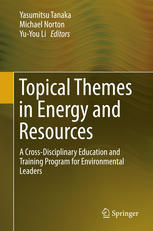

Most ebook files are in PDF format, so you can easily read them using various software such as Foxit Reader or directly on the Google Chrome browser.
Some ebook files are released by publishers in other formats such as .awz, .mobi, .epub, .fb2, etc. You may need to install specific software to read these formats on mobile/PC, such as Calibre.
Please read the tutorial at this link: https://ebookbell.com/faq
We offer FREE conversion to the popular formats you request; however, this may take some time. Therefore, right after payment, please email us, and we will try to provide the service as quickly as possible.
For some exceptional file formats or broken links (if any), please refrain from opening any disputes. Instead, email us first, and we will try to assist within a maximum of 6 hours.
EbookBell Team

0.0
0 reviewsThis book combines issues several critical ones in the energy field (low-energy technologies, renewable energies such as the hydrogen economy, and geothermal energy).
Moving towards a more sustainable world requires a complete revolution in the way we manage energy and resources. However, from an academic perspective, this theme is so broad that most educators and researchers tend to focus on just one aspect, and maintaining the broad viewpoint which is necessary for making strategic judgments becomes difficult. Tohoku University addressed this challenge when developing a new education and training program for environmental leaders and brought together the extensive range of expertise available in specific fields into one special course which forms the basis of this book. Now in one volume, both students and educators can be brought up to date on a wide range of critical issues currently being addressed in the field of energy and resources. Chapters on resources include availability (for instance, rare earth metals), extraction and recycling of metals and plastics, and technological solutions to specific waste-disposal problems. In addition, broader strategic issues such as limits to growth and the interaction between the economic system and environmental issues are addressed. Even though each chapter provides topical data and knowledge from disparate and specialized fields, the book is written at a level that is readily understandable by students from all scientific, engineering, and humanities fields.